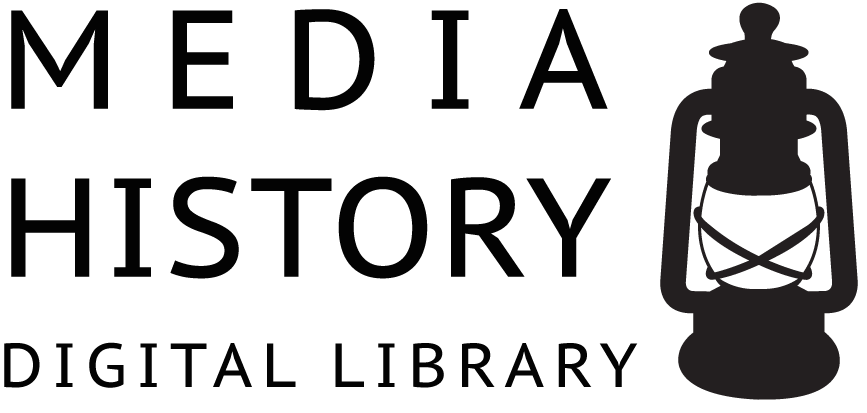
The Media History Digital Library is a free online resource featuring millions of pages of books and magazines from the histories of film, broadcasting, and recorded sound. We proud to be part of the Wisconsin Center for Film and Theater Research at the the University of Wisconsin-Madison.
For decades, researchers have relied on trade papers and fan magazines in writing the histories of film, media, and broadcasting. Industry trade papers, such as Variety and Film Daily, offer extensive documentation about the development of the media industries and their impact upon audiences and culture. Yet access to these sources remained limited. Scholars depended upon incomplete and low quality microfilm facsimiles. The majority of film and broadcasting magazines, which had never been transferred to microfilm, were only available at a handful of institutions. And none of the microfilm nor print copies were fulltext searchable. Instead, researchers had to turn page by page to look for relevant items to their research questions.
The Media History Digital Library (MHDL) digitizes, organizes, and distributes historic books and magazines about film, broadcasting, and recorded sound. The vast majority (98%) of materials in the Media History Digital Library are in the public domain and no longer protected by copyright. To determine which materials were available for digitization, we checked the U.S. copyright status of all titles. We reviewed every copyright renewal for serials (magazines) published from 1923 to 1950, and for titles after those dates, we searched the copyright records for the status of the major publications published from 1951 to 1963. The copyrights for nearly all of these media industry, fan and technical publications were not renewed, and those pre-1964 works are now in the public domain. However, we cannot accept any legal liability or assist you in the unlikely event that a third party emerges and claims to control the copyright.
Since the year 2020, the Media History Digital Library has been housed within the Wisconsin Center for Film and Theater Research (WCFTR).
